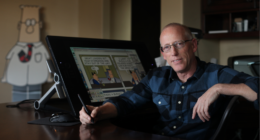Share this @internewscast.com
In parts of Mexico, deadly violence has become an unsettling norm as ruthless drug cartels battle for dominance over territory. These gangs have unleashed a reign of terror, leaving communities in fear and despair.
Over the years, grisly acts have been reported, including headless bodies suspended from bridges and remains dissolved in acid. Innocent civilians, children among them, have tragically lost their lives at so-called cartel ‘extermination’ sites.
In response to these atrocities, U.S. President Donald Trump has officially labeled six Mexican cartels as ‘foreign terrorist organizations.’ Citing their involvement in drug trafficking, human smuggling, and senseless violence, he argues that this designation is justified.
Taking a more aggressive stance in the fight against drugs, the Trump administration has even threatened military action against Mexico’s most violent cartels, aiming to safeguard U.S. national security.
For millions of Mexicans, however, this struggle is a grim reality. They live amidst the chaos, caught in the deadly crossfire as cartels vie for control of valuable drug routes.
In Culiacan, a fierce battle for supremacy within the notorious Sinaloa Cartel has made the city a hotspot for cartel violence. The conflict, which erupted last year, pits two factions against each other: Los Chapitos and La Mayiza.
Dead bodies appear scattered across Culiacán on a daily basis, homes are riddled with bullets, businesses shutter and schools regularly close down during waves of violence. Meanwhile, masked young men on motorcycles watch over the main avenues of the city.

Six alleged drug dealers were filmed as one of them was interrogated by a member of the Jalisco New Generation Cartel before they were shot and killed last year

Screengrab shows how Culiacan was left in flames after a drug cartel attacked the Mexican army
Public hangings
Earlier this year, four decapitated bodies were found hanging from a bridge in the capital of western Mexico’s Sinaloa state following a surge of cartel violence. Their heads were found in a nearby plastic bag, according to prosecutors.
On the same highway, officials said they found 16 more male victims with gunshot wounds, packed into a plastic van, one of whom was decapitated.
Authorities said the bodies were left with a note, apparently from one of the cartel factions.
While little of the note’s contents was coherent, the author of the note chillingly wrote: ‘WELCOME TO THE NEW SINALOA’ – a nod to the deadly and divided Sinaloa Cartel which is under Trump’s terror list.
The drug gang is one of the world’s most powerful transnational criminal organisations and Mexico’s deadliest.
Acts of violence by the Sinaloa cartel go back several years and have only become more gruesome as the drug wars rage on.

Twenty bodies were discovered this week, including four beheaded men hanging from a highway overpass
Acid baths
In 2009, a Mexican member of the Sinaloa Cartel confessed to dissolving the bodies of 300 rivals with corrosive chemicals.
Santiago Meza, who became known as ‘The Stew Maker’ confessed he did away with bodies in industrial drums on the outskirts of the violent city of Tijuana.
Meza said he was paid $600 a week by a breakaway faction of the Arellano Felix cartel to dispose of slain rivals with caustic soda, a highly corrosive substance.
‘They brought me the bodies and I just got rid of them,’ Meza said. ‘I didn’t feel anything.’
More recently in 2018, the bodies of three Mexican film students in their early 20s were dissolved in acid by a rapper who had ties to one of Mexico’s most violent cartels – the Jalisco New Generation Cartel, more commonly known as the CJNG.
Christian Palma Gutierrez – a dedicated rapper – had dreams of making it in music and needed more money to support his family.
Like many others, he was lured by the cartel after being offered $160 a week to dispose of bodies in an acid bath.
When the three students unwittingly went into a property belonging to a cartel member to film a university project, they were kidnapped by Gutierrez and tortured to death, before their bodies were dissolved in acid.

Santiago Meza (pictured in Mexico City in 2009), who became known as ‘The Stew Maker’, confessed to dissolving hundreds of bodies in acid in 2009

Mexican rapper Christian Palma Gutierrez (pictured) confessed to being on the payroll of the local drug cartel and to dissolving the bodies of three students in acid

Jalisco Institute of Forensic Sciences staff work at a house connected to the kidnapping and murder of three university students
Beheadings, mutilations and executions
The brutal act is just another example of how cartels in Mexico use violence to teach their rivals or potential threats a message.
The CJNG is known for leaving bodies battered as warning signs to anybody who would dare cross the cartel again.
In 2020, three people between the ages of 22 and 25 were left in critical condition, including a pregnant woman, with their hands missing, after they were accused of theft.
Their bodies were found bloodied in the back of a truck in Guanajuato by witnesses.
‘This happened to me for being a thief, and because I didn’t respect hard working people and continued to rob them,’ read one message attached to one of the men.
‘Anyone who does the same will suffer.’
Video footage published on Twitter showed the pregnant woman begging witnesses for help. Her hands, placed in a bag next to her, were recovered by paramedics.


A woman, aged 22, and two men aged 23 and 25, were found dumped beside a highway in Mexico while blindfolded and bound, with their hands hacked off by the cartels

The CJNG gang are said to be responsible for thousands of deaths and the disappearance of many people
Last year, six drug dealers were filmed being executed after confessing to working for a high-ranking police officer.
The execution was filmed and posted to social media, with a terrifying video showing the six men lined up together by alleged members of the CJNG as the man talking behind the cell phone camera interrogates them.
Within a matter of seconds, each drug dealer was shot in the back of the head.
Their bodies were placed inside six garbage bags that were left during the early hours of Monday at two neighborhoods within the Michoacán municipality of Zitácuaro.
The cartel hung two banners made out of cloths that threatened the National Guard.
‘You want war, war is what you will get,’ the sign read.
In September 2011, Mexican police found five decomposing heads left in a sack outside a primary school in Acapulco.
Dozens of schools went on strike over security concerns as violence ramped up in the region.
Teachers were seen out protesting with banners reading ‘Acapulco requires peace and security’.
Earlier that day, in another part of the city, five headless bodies were found in and around a burned out car.
Separating the heads from the bodies has no practical use for the cartels in disguising the murders, but inflames the sense of terror in the population.
Eleven years later, on the other side of the country, five more decapitated heads were found in an ice cooler in Tamaulipas.
The cooler contained a note from a cartel warning their rivals to ‘stop hiding’.
These tactics are not limited to some cartels or regions, then, but have found application across Mexico for years.

In September 2011, Mexican police found five decomposing heads left in a sack outside a primary school in Acapulco

Hitmen allegedly from the Mexican ‘Sinaloa Cartel’ reportedly abandoned a cooler filled with severed human heads at a gas station in La Concordia, southern Mexico with a note warning their rivals to ‘stop hiding’
High explosives and drones
Cartels have also been known to use high explosives to attack the state, as well as to undermine the work of rival criminal groups.
Firebombing in 2015 by the CJNG allowed the cartel to destroy government banks, five petrol stations and 36 vehicles as they clashed with the authorities.
In 2019, another 27 were killed as cartel members threw molotov cocktails at a nightclub in Veracruz. Six of 11 injured were left with burns covering 90% of their bodies. The cartel blocked the exits and many who did not die from the fire suffocated without air.
Not only rival gang members are targeted. In 2008, during a Mexican Independence Day celebration, two grenades were thrown by Los Zetas members into a crowd of 30,000 in Morelia city. The blast killed at least eight.
With drug money, cartels have been able to expand their arsenals, making drones a mainstay of their terror tactics. Remote controlled UAVs equipped with bombs now give the cartel air superiority in regions of Mexico, sending residents running for their lives.
Nearly half the population of Chinicuila city in Michoacán fled when the cartel tested its new technology on a contested part of Mexico in December 2021.
Violence in Mexico began rising sharply in 2006, following the launch of a military-led campaign against drug cartels under then-President Felipe Calderón of the conservative PAN party.
Killings kept rising from then and peaked during the administration of Andrés Manuel López Obrador, who governed from 2018 to 2024.

Cartels have also been known to use high explosives to attack the state. Pictured: An aerial view of a drone attack by a drug gang in 2015
A bloody power struggle erupted in September last year between two rival factions, pushing the city of Sinaloa to a standstill.
The war for territorial control was triggered by the dramatic kidnapping of the leader of one of the groups by a son of notorious capo Joaquín ‘El Chapo’ Guzmán who then delivered him to US authorities via a private plane.
Since then, intense fighting between the heavily armed factions has become the new normal for civilians in Culiacan, a city which for years avoided the worst of Mexico’s violence in large part because the Sinaloa Cartel maintained such complete control.
The New York Times reported that the factional war has forced El Chapo’s sons to ally with its adversary, the Jalisco New Generation Cartel.
Extermination sites
Since September last year, more than 2,000 people have been reported murdered or missing in connection to the internal war.
Hundreds of grim discoveries have been made by security forces, but the most shocking of all came in March last year – so gruesome that it chilled even hardened investigators.
It was a secret compound near Teuchitlán, Jalisco, where the Jalisco New Generation Cartel (CJNG) allegedly ran a full-scale ‘extermination site’.
Buried beneath Izaguirre ranch, authorities found three massive crematory ovens.
They contained piles of charred human bones, and a haunting mountain of belongings – over 200 pairs of shoes, purses, belts, and even children’s toys.
Experts believe victims were kidnapped, tortured and burnt alive, or after being executed, to destroy evidence of mass killings.
The chilling find was made on a ranch that has been secured by cops several months prior.
When cops stormed the site, they arrested ten armed members of the cartel, and found three people who had been reported missing (two were being held hostage, while the third was dead, wrapped in plastic).

Two hundred pairs of shoes were discovered at Izaguirre ranch, the skeletal remains of dozens of people were found

Some activists say the ranch was used to lure in innocent victims to teach them how to become killers

The Mexican National Guard arrives at the ranch to investigate the gruesome find
José Murguía Santiago, the mayor of the nearby town, was also arrested in connection to the crimes.
The ranch was also being used as a training centre for the cartel, who have now been declared a terrorist organisation by US president Donald Trump’s administration.
Several advocates in Mexico have raised concerns about cartel brutality.
Two of them, a mother and son duo, were slaughtered in April this year after revealing what was going on at the ranch, which they called an ‘extermination camp’.
Maria del Carmen Morales, 43, and her son, Jamie Daniel Ramirez Morales, 26, were staunch advocates for missing people in Mexico.
According to cops, ‘a pair of men’ targeted Daniel in Jalisco and when his mother stepped in to defend him, she was also set upon.
Maria’s other son went missing in February the previous year. She fought tirelessly to find out what had happened to him.

US President Donald Trump has formally designated six cartels in Mexico as ‘foreign terrorist organizations’ and has threatened to launch military action against them
Reports indicate that since 2010, 28 mothers have been killed while searching for their relatives.
Just a few weeks after the ranch was discovered, authorities in Zapopan, a suburb of Guadalajara, unearthed 169 black bags at a construction site, all filled with dismembered human remains.
The bags were hidden near CJNG territory, where disappearances are widespread. Activists say families reported dozens of missing young people in the area in recent months.

















